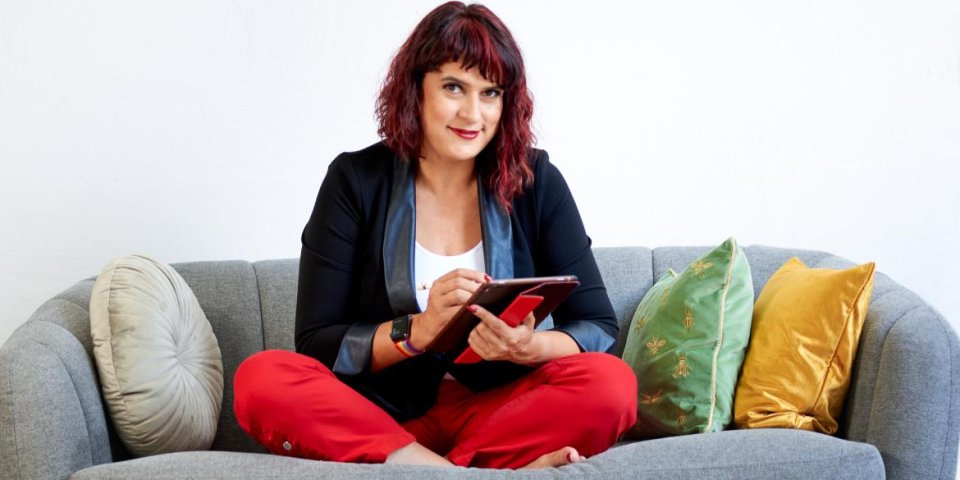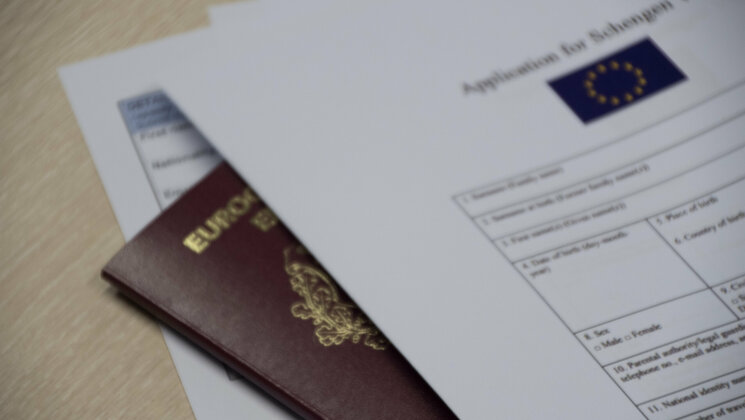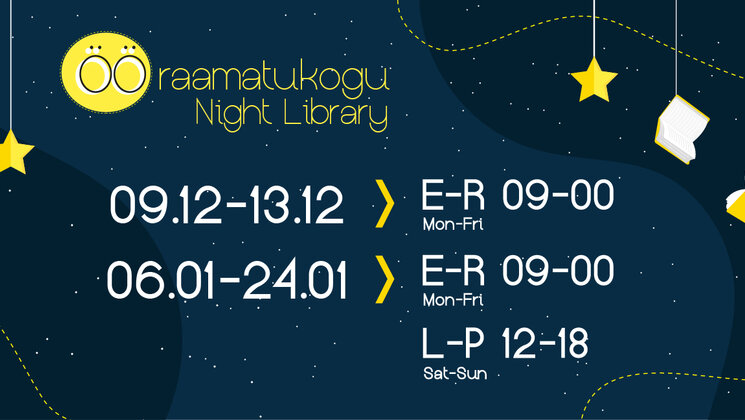How are you doing, doctoral student?
The academic year 2022/23 brought changes to doctoral studies, and doctoral students were also given the status of university employee. The Universitas Tartuensis magazine asked what the doctoral students themselves think about their studies.
Universitas Tartuensis interviewed a random sample of doctoral students: Pille-Riin Meerits, a third-year doctoral student at the Institute of Sport Sciences and Physiotherapy; Anna-Kati Pahker, a third-year doctoral student at the Institute of Social Studies; Fred Puss, a fourth-year doctoral student at the Institute of History and Archaeology; Diana Poudel, a first-year doctoral student at the Institute of Social Studies; Kaisa Tammoja, a second-year doctoral student at the Institute of Estonian and General Linguistics; and Triin Käpp, a recent Doctor of Philosophy in Religious Studies.
One interviewee is studying under the new doctoral programme, the others under the old curricula. Most interviews were conducted online or by phone, the only face-to-face interview was with the internet researcher Diana Poudel. Therefore, conversations were largely held in the comfort of a home office behind a screen.

Why doctoral studies?
Our interviewees did not take up doctoral studies on a whim or due to a desire to extend one's studies, as is perhaps sometimes implied by public debate.
Kaisa Tammoja, who holds a degree in Estonian philology and works as a consultant for non-profit organisations at the Põlva County Development Centre, is researching the surnames of Põlva parish for her doctoral thesis. "I am rather doing it for myself, to research an interesting topic," she says.
Fred Puss, a lexicographer and junior research fellow at the Institute of the Estonian Language (EKI), came to doctoral studies with his 'old bachelor's degree', equivalent to a master's degree. His research focuses on the evolution and layers of Estonian surnames until 1940. "I had already been thinking about doing a doctorate, but it was my participation in the project on the history of Estonian surnames that made me decide to apply," says Fred. "Other working group members had doctoral degrees, which inspired me to take up studies."
Pille-Riin Meerits, who has a background in gene technology, took up doctoral studies in sports physiology because of personal experience: as a mother, she saw how easily children get caught up in computer games or smartphones. "My research aims to find ways for parents to encourage their children to exercise so that they develop an intrinsic motivation to exercise or be outdoors in their free time."
Diana Poudel is the only interviewee to have started her doctoral studies in the new system. As a first-year doctoral student, she is therefore also a Junior Research Fellow in Information Resilience at the Institute of Social Studies. Diana had been thinking about doctoral studies for a long time and has once even failed to be admitted. Instead of her previous topic, media literacy, she now turned to information resilience, which is currently a hot topic due to the information war.
Anna-Kati Pahker, a Project Communication Specialist at the Institute of Social Studies, is in her third year of doctoral studies. She focuses on sustainability transitions and industrial modernity between 1900 and 2020, a topic that grew out of her master's thesis, where she studied the role of users in the impact of internet transition in the US.
Triin Käpp, a pastor at Tartu St John's Church, had discontinued her doctoral studies but returned to her doctoral research because of a deep interest in her topic, the role of Christian schools in 21st-century education.
For and against working while studying
Kaisa admits that she has considered giving up her main job to fully commit herself to her doctoral studies, but this is not an option at the moment due to the rising cost of living.
"I'll definitely have to work for another six months, and maybe I won't be able to leave so easily," she says, emphasising that the university is not to blame. "I just don't want to find myself in a situation where I suddenly have no income and the unemployment fund can't help me because I'd been getting an allowance instead of a salary so far."
Fred finds that the allowance from the University of Tartu and a junior research fellow's salary from EKI are enough to live on during his doctoral studies. "Even if I need to work a bit in addition to that, I don't have to do it full-time."
To a greater or lesser extent, all the interviewees work while studying. Fred is working both at EKI and in his own company but plans to complete his doctoral studies within the standard period. For him, this is somewhat easier thanks to the fact that he had studied for one year as an external student before starting his doctoral studies. Life experience is no less important, as he had a gap of a couple of decades between his study periods. "I didn't have to start from scratch when I started my doctoral studies. It was much easier to settle in and get acquainted with the sources, which is a basic task in history, because I deal with the same subject at work. That is why my doctoral studies progress quickly. Moreover, I can regulate my workload and working hours myself," he says.
For Anna-Kati, who is doing research communication on the same project her doctoral thesis deals with, the workload is not a big problem. "The amount of time you have is always limited, but it doesn't directly interfere with completing the thesis."
Kaisa managed to do everything she planned to in the first year but feels she paid a price for it: working full-time alongside her doctoral studies, there was no time for rest.
Triin, too, worked during her studies. "Once you've arrived at a point in your life, you don't quit your job, you just don't give it up." She missed the opportunity to take a longer study leave from time to time to concentrate more on research. "In the new system, it's worth thinking about how to support doctoral students who work at the same time," says Käpp. "If I'm not in a hurry to graduate, if I'm interested in my studies, and I actually need what I'm learning in my professional life, why shouldn't I have the chance to extend my studies?"
Up to their eyes in doctoral research
One of the downsides of online learning is that it is much harder to develop a sense of community. Lectures are the only place to meet other doctoral students. Kaisa and her fellow students set up a Facebook group.
"We communicate with each other, post important information and try to support each other," she describes. The group is a great help, as Kaisa is new to Tartu and does not have time for student life.
Diana also admits that she has little contact with doctoral students at her institute and wonders whether she should also create a doctoral student network. "Everyone is doing their things, and sometimes we bump into each other somewhere." On the subject of her doctoral thesis, she would also like to exchange ideas with researchers in other fields.
"In the end, seeing another person is a value in itself," says Triin, who met fellow doctoral students during her studies only at doctoral seminars.
Pille-Riin says that face-to-face, she mainly only sees her colleague with whom she shares her office and started her doctoral studies with. She refutes the notion that doctoral students in sciences work together more than those in the humanities or social sciences – "although you're with people in the lab, you're still doing your experiments and measurements on your own."
Anna-Kati's study-related contacts are limited to her friends who have also happened to become doctoral students. She does not see this as a problem. At the same time, she is the only interviewee who works as a member of a research group. Anna-Kati praises both her team and her supervisor, whose support has made it easier to progress with her doctoral thesis.
"When I need something or lack knowledge, my supervisor finds someone who can help me. Of course, I have to make an effort myself," she says.
Fred had to seek help from colleagues working at the University of Tartu because his supervisor at the time did not work here and some of the information was confusing. "Much of what I didn't know should be part of the introductory courses, not left for the supervisor to teach," he says. He felt he mostly lacked a comprehensive overview of the research funding system.
"What to do when the doctoral studies are over, how to write project proposals? Doctoral students need to know the basics of how a researcher works, where they get their money from, what these much-talked-about projects mean and what other job opportunities there are outside the university," he lists. He says it should be the duty of the faculty to brief doctoral students on that, as the funding system is rather similar within the faculty. There should also be more discussion of the importance of research communication, which does not seem clear to all doctoral students from the introductory courses. "One could see that doctoral students have a different understanding of this. Still, research communication is becoming increasingly important: a simple and clear overview of what researchers do is already needed for the funders, not to mention the public whose money is also used for research."
Stress can start to affect health
Working full-time while being a doctoral student is not easy. But Triin, who worked two jobs besides her doctoral studies, says she managed – "I suppose my mental health wasn't great afterwards, but it wasn't too bad." She did not seek help from a doctor but relied on friends.
Kaisa admits that the workload of the first year was too much for her. "I managed to complete everything, but the price was quite heavy. I have previous experience with depression, so I could see where the moment was to put on the brakes." She sought help from the university's psychologist, got her head straight and came to the conclusion that it was all too much and the workload needed to be reduced.
According to Anna-Kati, the first year of her doctoral studies was also very difficult, as the pandemic started shortly after her admission. Even though it did not interfere with writing the thesis, the atmosphere was tense. Looking back, she says she did not realise how difficult it really was. Instead, she asked for advice later, after teaching her first lectures, when she received negative feedback from a student via the SIS and was devastated. "That's when I contacted the university's counsellor. Of course, now I realise it wasn't the end of the world."
The support of the university can be felt
Doctoral students of both the old and the new system confirmed that they feel part of the university. "We have access to the intranet and can read the documents and minutes of decision-making bodies, just like the staff," says Kaisa. "I'm the one who usually actually reads the minutes. Not that it concerns me directly, but I can see where the university is going, and I feel involved in it all."
Diana, who was admitted under the new system, describes it the same way. "I have my own desk, an employee ID card and an employment contract."
On the other hand, she describes a sort of culture shock – normally, a staff member is given a set of tasks, but a junior research fellow in doctoral studies is not. "At the moment, it's more like a doctoral student comes in and has to figure out what exactly he or she should be doing."
According to the respondents, the biggest benefit of the new system is that they are fully-fledged employees with all the benefits and guarantees of an employment contract.
However, Triin and Pille-Riin are not sure whether they would have started doctoral studies under the new system. For Triin, leaving her job would have been too big a decision, while Pille-Riin is doubtful whether it would be possible to work full-time as a junior research fellow while having children. In her opinion, the new system is more suited to those thinking about a career in research.
Fred worries about the extent to which a system will remain in place where 80% of your working time is devoted to your doctoral thesis and 20% can be made up of other duties. "If you're expected to do teaching and give lectures, that's a pretty big extra task," he says.
Diana has the same doubts: "I'd like to hope that the 80:20 ratio will hold. However, there are early indications that it could end up at 50:50. Not that anyone is forcing it, but there are so many exciting things on offer..."
Little career security
Kaisa has made several career turns in her life and does not worry too much about the future. "I could be at university working on projects or do something else," she says. She does not think there would even be full-time academic work available in her field after completing her PhD.
Fred will continue working on his current project after graduation but is also thinking about a post-doctoral position to find ways to further his research.
Anna-Kati is also considering a post-doctorate and sees her future rather in academia. However, she lists several factors that are not exactly appealing – from the low salary to the frequent expectation of unpaid work, which tends to happen.
Pille-Riin does not see herself pursuing a research career right now. "Competition is very tough. To be a top scientist, you have to be fully committed. Rather, I see myself as an expert with a PhD in the future."
Diana is also absolutely certain that she will not become a researcher. "I would rather like to be the person who brings practice into the university and takes academic thought into practice, and cross-pollinates between the two domains."
Triin, who has already defended her degree, has no plans to change careers but has experienced that a PhD has brought previously unattainable opportunities – for example, to apply for jobs that require a PhD.
"Anyone who has the ability to defend a doctoral thesis should do it," suggests Fred, who thinks society should have more people with a doctoral degree. "They don't all have to be researchers. Doctoral studies broaden your world view, which is useful in all areas, not just research."
Mari-Liisa Parder
UT Doctor of Philosophy
The article was originally published in the journal Universitas Tartuensis.




